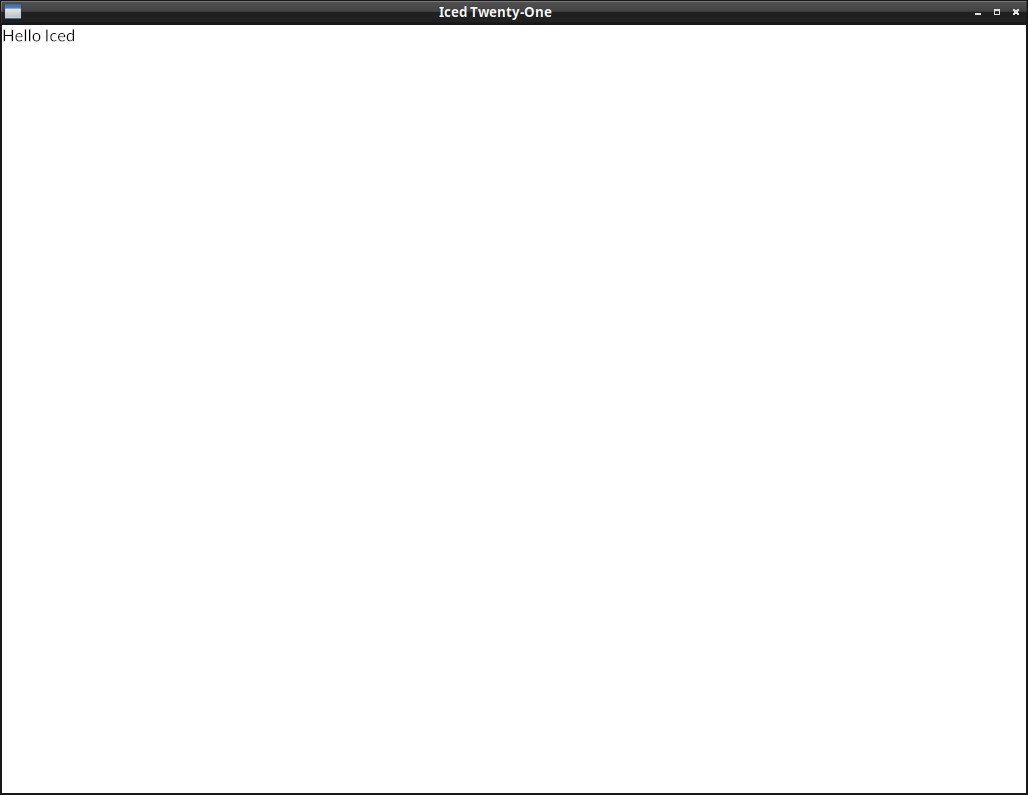Hello World
Let's start by creating the project:
$ cargo new iced-twentyone
Enter in this directory and, in your Cargo.toml, add the iced dependency:
[dependencies]
iced = "0.10.0"
This is the code for a minimal Hello World example, write it in your src/main.rs:
use iced::widget::{container, text};
use iced::{Sandbox, Element, Settings};
#[derive(Default)]
struct IcedTwentyOne;
#[derive(Debug, Clone, Copy)]
enum Message {
}
impl Sandbox for IcedTwentyOne {
type Message = Message;
fn new() -> Self {
Self::default()
}
fn title(&self) -> String {
String::from("Iced Twenty-One")
}
fn update(&mut self, message: Message) {
}
fn view(&self) -> Element<Message> {
let hello = text("Hello Iced");
container(hello).into()
}
}
pub fn main() -> iced::Result {
IcedTwentyOne::run(Settings::default())
}
Let's look into it part by part:
#[derive(Default)]
struct IcedTwentyOne;
#[derive(Debug, Clone, Copy)]
enum Message {
}
impl Sandbox for IcedTwentyOne {
Our app IcedTwentyOne has to implement the traits Sandbox or Application (Sandbox is a bit simpler and Application has a few more features, like using async and receiving initialization flags).
In Iced, a message represents a user interaction or some other relevant event (a click, selecting an item of a list, receiving updates from an async function, etc.). Our Message enum is still empty because there's no interaction at all in this hello world example.
fn update(&mut self, message: Message) {
}
The update function is where we will receive and process the messages of our application (those button clicks, radio button selections, drop down list selections, etc), but currently there's no message to process.
fn view(&self) -> Element<Message> {
let hello = text("Hello Iced");
container(hello).into()
}
The view function is where we define the layout of the app, in this case we have a Text widget with "Hello Iced", which we put inside a container widget and call .into() to convert it into an Element (in general you don't need to worry about this last part)
